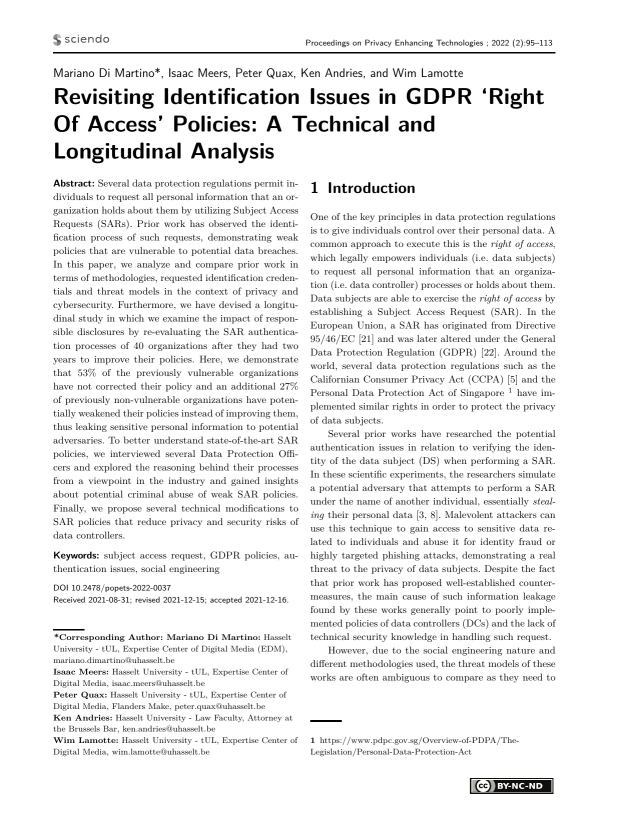Revisiting Identification Issues in GDPR ‘Right Of Access’ Policies: A Technical and Longitudinal Analysis
Authors: Mariano Di Martino (Hasselt University - tUL, Expertise Center of Digital Media (EDM)), Isaac Meers (Hasselt University - tUL, Expertise Center of Digital Media), Peter Quax (Hasselt University - tUL, Expertise Center of Digital Media, Flanders Make), Ken Andries (Hasselt University - Law Faculty, Attorney at the Brussels Bar), Wim Lamotte (Hasselt University - tUL, Expertise Center of Digital Media)
Volume: 2022
Issue: 2
Pages: 95–113
DOI: https://doi.org/10.2478/popets-2022-0037
Abstract: Several data protection regulations permit individuals to request all personal information that an organization holds about them by utilizing Subject Access Requests (SARs). Prior work has observed the identification process of such requests, demonstrating weak policies that are vulnerable to potential data breaches. In this paper, we analyze and compare prior work in terms of methodologies, requested identification credentials and threat models in the context of privacy and cybersecurity. Furthermore, we have devised a longitudinal study in which we examine the impact of responsible disclosures by re-evaluating the SAR authentication processes of 40 organizations after they had two years to improve their policies. Here, we demonstrate that 53% of the previously vulnerable organizations have not corrected their policy and an additional 27% of previously non-vulnerable organizations have potentially weakened their policies instead of improving them, thus leaking sensitive personal information to potential adversaries. To better understand state-of-the-art SAR policies, we interviewed several Data Protection Officers and explored the reasoning behind their processes from a viewpoint in the industry and gained insights about potential criminal abuse of weak SAR policies. Finally, we propose several technical modifications to SAR policies that reduce privacy and security risks of data controllers.
Keywords: subject access request, GDPR policies, authentication issues, social engineering
Copyright in PoPETs articles are held by their authors. This article is published under a Creative Commons Attribution-NonCommercial-NoDerivs 3.0 license.

